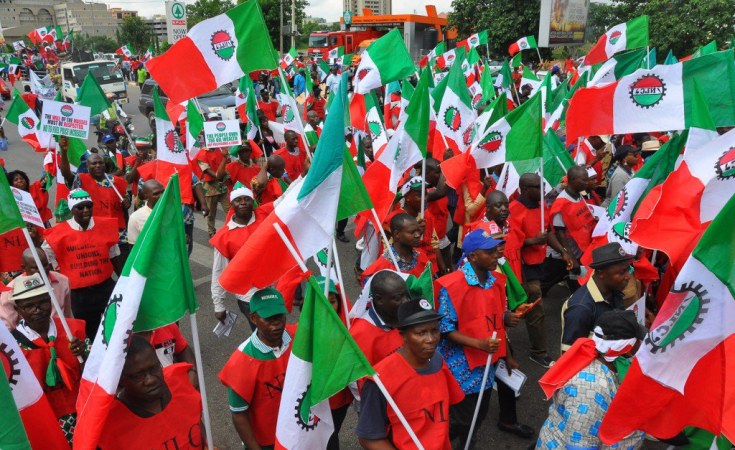BENIN CITY – ORGANISED labour in Edo state led the Nigeria Labour Congress (NLC), yesterday in Benin City joined their counterparts across the country to protest against bill seeking to remove the National Minimum Wage from the Exclusive Legislative List to the Concurrent Legislative List.
The workers marched through the popular Oba Ovonmramwen Square to the Edo State House of Assembly where they submitted their grievances to the Speaker, Edo State House of Assembly, Hon. Marcus Onobun.
At the house of assembly, the workers were received by the Clerk of the House, Mr Audu Omogbai on behalf of the Speaker who was said to have been out of the state for official engagements.
Presenting the union’s demands to the Speaker, chairman of NLC in Edo State, Comrade Sunny Osayande said moving the minimum wage from its current list to the proposed Concurrent Legislative List will be tantamount to negation of the efforts of the “Nigerian working class in the past forty years to free itself from the cruel manacles of slave wages, savagery working conditions and the slave drivers.”
He noted that the National Minimum Wage is a global standard adopted by the International Labour Organizations (ILO) and that Nigeria being a member of the ILO, it will be wrong to implement such law.
He said “The National Minimum Wage is the benchmark minimum below which no employer of labour can pay an employee in any given national jurisdiction. It is a global standard. It was adopted as an International Labour Standard by the International Labour Standard by the International Labour Organization (ILO) as Minimum Wage Fixing Machinery Convention 026 of 1928.
“Each member state of the ILO that adopts this convention undertakes to establish a system of minimum wage which covers all the sectors of the economy including the organized private sector in which wages are to be paid hourly, daily or monthly as the case may be,” he said.
He said removing the minimum wage from the exclusive list is “A license for state governors to drag the country back to the era of ridiculous slave wages which in the past had participated in a multifarious industrial crisis in different parts of the country.
“The exponential creation and expansion of a community of the working poor with all the attendant consequences for socio-economic cohesion, stability and progress,” he said.


Comments
Post a Comment